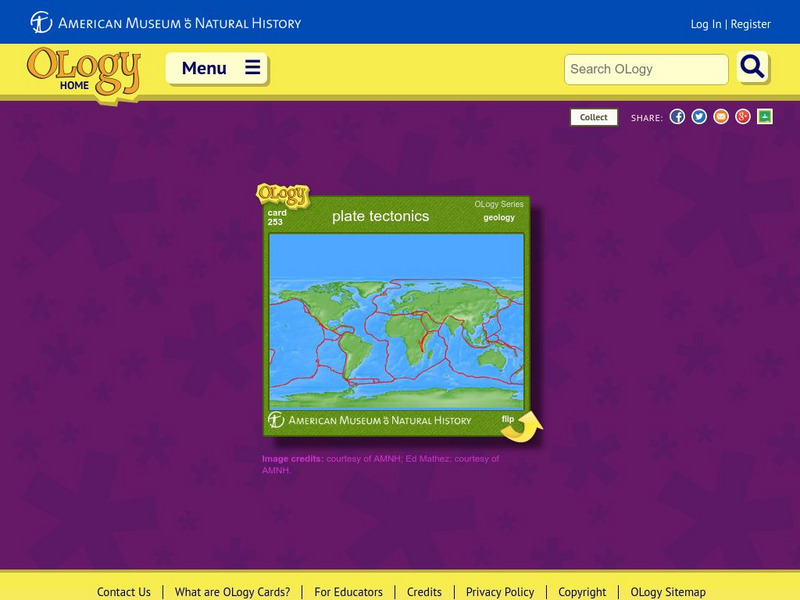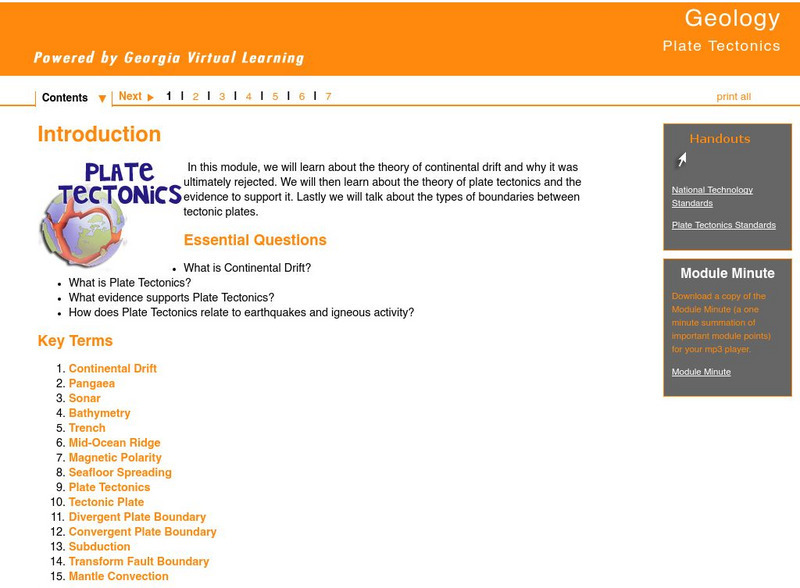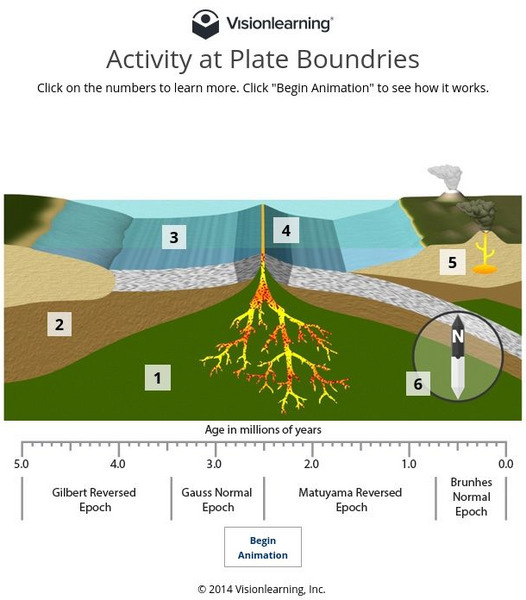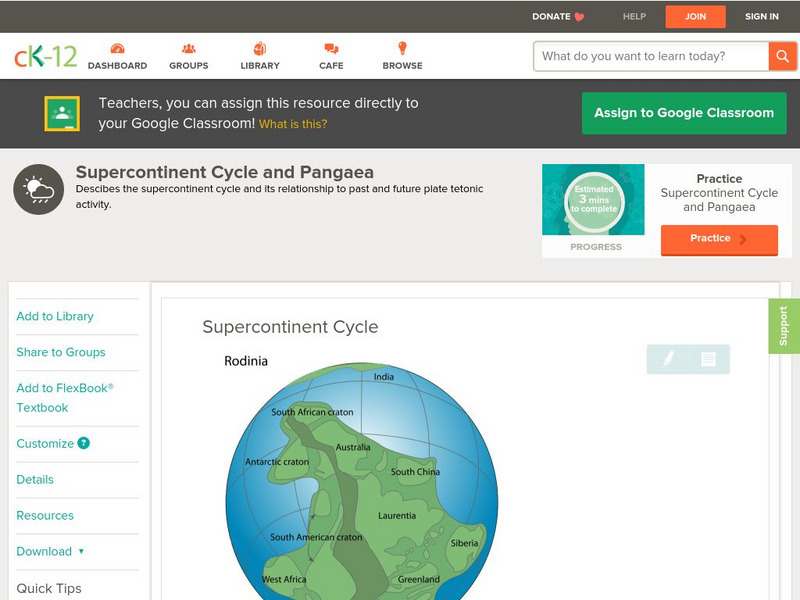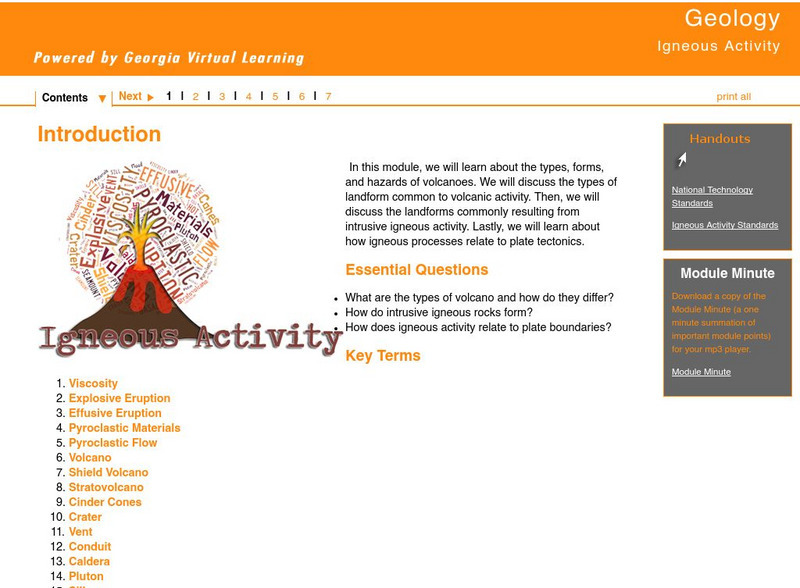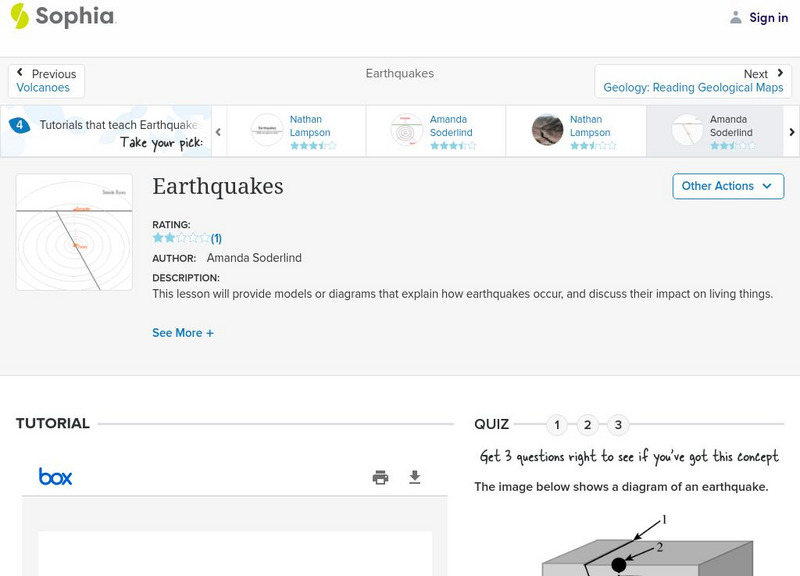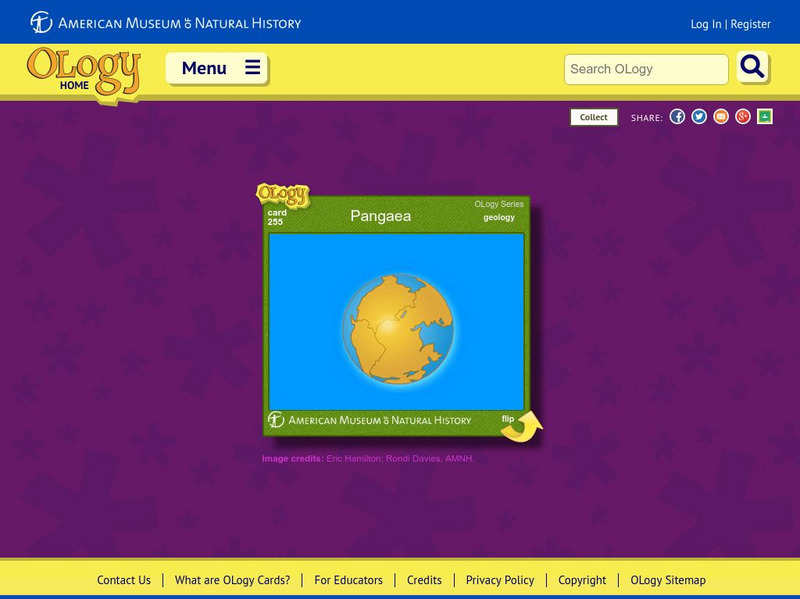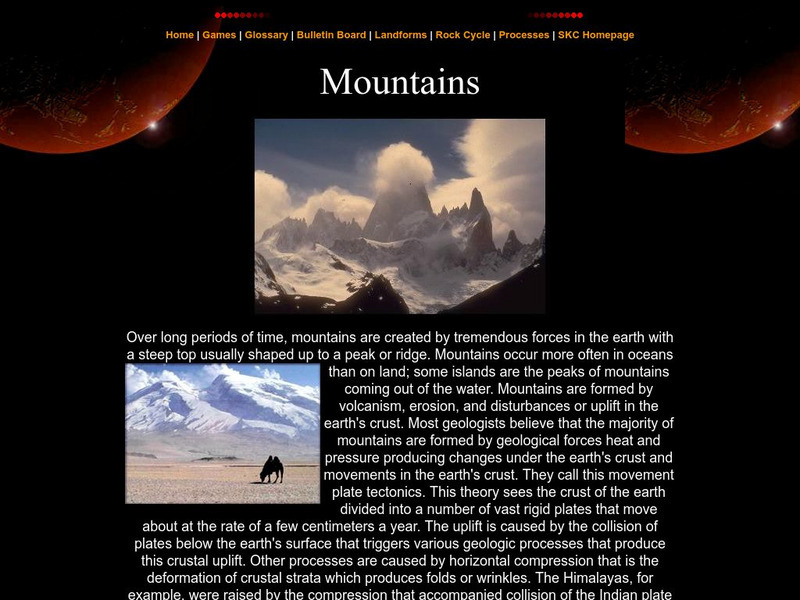Curated OER
How Creepy!
Students observe and measure a model of slow down slope movement. In this graphing lesson students collect, record, and organize data that apply to models.
Annenberg Foundation
Annenberg Learner: Dynamic Earth Interactives: Plate Tectonics
The resource explores the Earth. There are tutorials on plate tectonics, plates and boundaries, and the Earth's structure. There is also an introduction and an interactive activity to test the students on skills taught.
Vision Learning
Visionlearning: Plate Tectonics: The Origin of Plate Tectonic Theory
Discover Alfred Wegner's ideas relating to continental drift and seafloor spreading which are both evidence to the concept of plate tectonics.
CK-12 Foundation
Ck 12: Fourth Grade Science: Earth Science: Theory of Plate Tectonics
[Free Registration/Login may be required to access all resource tools.] Discusses what a tectonic plate is and how scientists can recognize its edges, how the plates move by convection in the mantle, the three types of plate boundaries...
American Museum of Natural History
American Museum of Natural History: Plate Tectonics O Logy Card
Flip over this interactive OLogy card to find fast facts, questions and answers, and similar bite-size pieces of information about plate tectonics.
Georgia Department of Education
Ga Virtual Learning: Plate Tectonics
In this interactive tutorial you will learn about the theory of continental drift and why it was ultimately rejected. Then learn about the theory of plate tectonics and the evidence to support it. Lastly discover the types of boundaries...
Vision Learning
Visionlearning: Activity at Plate Boundaries
A simulation that demonstrates divergent plate boundaries and seafloor spreading. A focus is on evidence of the Earth's normal and reversed polarity over geologic time in the rock record.
Annenberg Foundation
Annenberg Learner: Dynamic Earth Interactives: Earth's Structure
The resource explores the Earth. There are tutorials on plate tectonics, plates and boundaries, and the Earth's structure. There is also an introduction and an interactive activity to test the students on skills taught.
Smithsonian Institution
National Air and Space Museum: Exploring the Planets: Earth's Lithosphere
The plate tectonics and other features of the Earth's lithosphere are explained and illustrated. Has links to definitions of the magnetosphere, atmosphere, and hydrosphere.
Georgia Department of Education
Ga Virtual Learning: Mountain Building
In this interactive tutorial you will learn how pressure creates stress and strain on rocks. Learn how different types of strain are produced by different plate tectonic settings, and explore the different types of mountain ranges and...
Georgia State University
Georgia State University: Hyper Physics: Fossil Distribution
One of the first lines of evidence suggesting the existence of plate tectonics was the discovery of very similar fossils in rock masses separated by vast distances and by ocean expanses. It suggested that those land areas had in the past...
CK-12 Foundation
Ck 12: Earth Science: Supercontinent Cycle
[Free Registration/Login may be required to access all resource tools.] The history of plate tectonics past and future.
Georgia Department of Education
Ga Virtual Learning: Igneous Activity
In this interactive tutorial you will learn about the types, forms, and hazards of volcanoes. The types of landform common to volcanic activity is discussed. Then, the landforms commonly resulting from intrusive igneous activity are...
Sophia Learning
Sophia: Earthquakes
A quick, introductory lesson about how earthquakes happen, and what impact these natural events have on life.
American Museum of Natural History
American Museum of Natural History: Pangaea O Logy Card
Learn about the supercontinent known as Pangaea that broke apart into the continents that we know today. Answer questions when you finish reading.
US Geological Survey
U.s. Geological Survey: 1906 Marked the Dawn of the Scientific Revolution
This site contains information about we have learned about the San Andreas Fault since 1906.
Other
Southern Kings Consolidated School: Mountains
Site from the Southern Kings Consolidated School about mountains. Learn what mountains are and how they form.
Khan Academy
Khan Academy: Alfred Wegener and Harry Hess
Did you know the continents on Earth are in constant motion? Our knowledge of this is thanks to both Alfred Wegener and Harry Hess. This article discusses the work of these two scientists.
Annenberg Foundation
Annenberg Learner: Earth and Space Science: The Geologic Timeline
Take this online quiz and test your knowledge of geological history, and the formation of our atmosphere, water, crust, oxygen, tectonic plates, Moon, and the rest of the Earth.





